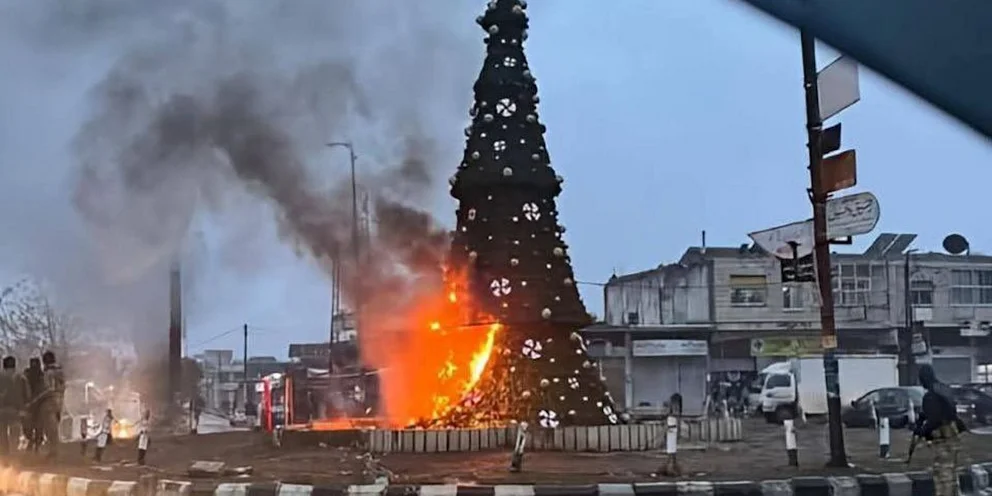Demonstrations erupted in Christian neighborhoods of Damascus after a Christmas tree was burned near Hama, in central Syria, according to Agence France-Presse.
“We demand the rights of Christians,” shouted demonstrators who marched through the streets of the Syrian capital toward the headquarters of the Orthodox Patriarchate in the Bab Sharqi neighborhood.
Taking to the streets spontaneously in various neighborhoods, they gathered to express their discontent and anxiety, more than two weeks after an alliance of armed groups seized power, overthrowing President Bashar al-Assad.
The former president presented himself as a guarantor of the rights and protector of minorities in the predominantly Sunni country.
Christians in the Streets of Damascus
“We took to the streets because there is a lot of sectarianism, injustice against Christians under the pretext that these are ‘isolated incidents’,” George told AFP. “If they don’t let us practice our Christian faith in our country, as we used to, then we no longer have a place here,” he added.
Some of the protesters carried wooden crosses; others waved the Syrian “independence” flag with three stars, adopted by the new de facto authorities.
The demonstrations erupted after a video circulated on social media showing masked fighters setting fire to a Christmas tree in the predominantly Orthodox Christian community of Suqaylabiyah, near Hama.
According to the Syrian Observatory for Human Rights, these fighters are foreign members of the jihadist organization Ansar al-Tawhid.
“The Perpetrators Will Be Punished”
Another widely circulated video shows a cleric from Hayat Tahrir al-Sham (HTS), which is effectively in power, addressing residents of the community, assuring them that the perpetrators of this act “are not Syrians” and that they will be punished.
“The tree will be replaced, and the lights will be on by tomorrow morning,” he adds, flanked by Christian clergymen, while being cheered by residents.
Unifying the country, fragmented after nearly a decade and a half of bloody war, with various armed groups holding divergent ideological and political orientations, will be a challenge for the new HTS authority.
The former al-Qaeda affiliate in Syria, which claims to have renounced jihadism and adopted moderate rhetoric, is under scrutiny, particularly for its treatment of religious and ethnic minorities – especially Christians, Kurds, and Alawites.
HTS is faced with managing the presence of many foreign fighters, particularly from Central Asian countries, who joined its ranks or those of other Islamist and jihadist groups during the Syrian war, which erupted in 2011 and raged until earlier this month. Controlling these fighters is a major challenge for the de facto authorities.

